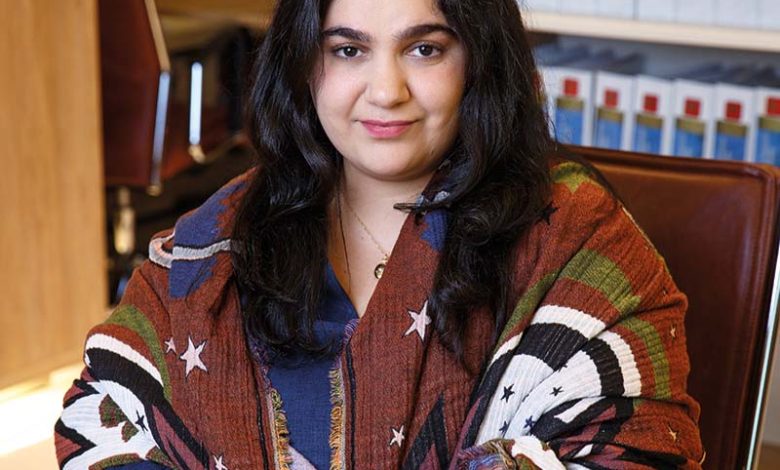The Hidden Face of the Pandemic: The Psychological Impact of COVID-19 on Healthcare Workers in Kuwait

في أوائل العام 2020، صنفت منظمة الصحة العالمية In early 2020, the World Health Organization (WHO) classified the spread of COVID-19 as a global pandemic and declared a state of emergency. While many of us had to adhere to lockdown measures and switched to studying and working from home, healthcare workers were required to continue working in full capacity to care for infected patients. The prevalent uncertainty and disruption caused by the pandemic proved to significantly impact our collective psychological health and, more acutely, that of healthcare workers who are still on emergency mode due to the variants that continue to spread.
At the beginning of the pandemic, Sarah Al Kandari, research assistant and chairperson of the Animal Care and Ethics Committee at Dasman Diabetes Institute, was part of a group of frontline volunteers who were called to assist the medical staff performing PCR tests for people arriving on evacuation planes. Her background in genetics meant that she was familiar with the PCR as a research tool now used to diagnose COVID-19.
When Al Kandari began working in April 2020, it was two months into the pandemic and her first time working as a healthcare worker in a clinical lab setting. She described the experience as brutal; they worked long shifts that lasted until three or four in the morning – sometimes longer depending on the workload they were required to complete.
“Even though I was there in a volunteer capacity and I could leave when I finished the six-week period, I was already experiencing burnout,” Al Kandari said. “It really made me think of the healthcare workers who were doing this with no end in sight.”
Informed by her background in healthcare systems and in collaboration with doctors from different fields, Al Kandari started to investigate the psychological impact of the COVID-19 pandemic on healthcare workers in Kuwait.
With the assistance of psychiatrist Mohammad Al Suwaidan, Al Kandari and collaborators utilized validated questionnaires to measure things like depression, anxiety, and wellbeing among healthcare workers. By utilizing the WHO-5 Well-Being survey, the Patient Health Questionnaire-9 (PHQ-9) and the Generalized Anxiety Disorder survey (GAD-7), the team was able to measure the mental health of 378 healthcare workers during the first two weeks of July 2020.
قالت الكندري: “لقد استخدمنا شيئًا يسمى تقنية جمع العينات المتسلسلة Snowball Gathering Technique“We used something called the snowball gathering technique, which is when we send the survey to one person and they send it to their network,” she said. “We had a few medical doctors in different fields helping us with data collection like Dr. Maha Amber and Dr. Fatima Al Hajji from Farwaniya Hospital, as well as Dr. Essam Al Amad from Adan Hospital.”
The study shows that there are high levels of anxiety and depression among healthcare workers due to stressful working conditions. On the one hand, 77 percent reported moderate levels of anxiety and 20 percent reported symptoms of severe anxiety; on the other hand, 83 percent reported some level of depression, while nine percent reported severe depression. Sadly, these results were not surprising to the team since there’s a general rise in levels of depression and anxiety among healthcare workers on a global scale.
“We’re all facing the same thing; fear of a life-threatening disease, loss of loved ones, social isolation due to lockdown restrictions, education disruption, unemployment and financial instability,” Al Kandari said. “Imagine having a healthcare body working as a frontline defense against the pandemic for two years, with no time off, and they’re also facing what we’re facing.”
As the pandemic enters its third year, this elongated pressure on healthcare workers can have devastating consequences if not properly addressed. Having social support proved to lessen the mental strain experienced by healthcare providers during the pandemic. According to the findings of the research project, married participants reported less frequency and severity of symptoms of both anxiety and depression compared to unmarried participants. For example, unmarried healthcare workers are 12.4 percent more likely to experience severe depression compared to married healthcare workers.
“We found that the stress responses of poor nutrition, self-harm, and suicide ideation were more frequent in unmarried healthcare workers, which brings us to the whole aspect of how social support, in this case exemplified in partnership, can have a great impact on the workers ability to cope with the day-to-day stress,” she said. Finding ways to establish a wider supportive social network within this high-stress setting can positively impact the workers’ mental health in these challenging times, “Evidence-based supportive measures are imperative in assisting healthcare workers in maintaining their mental health.”
Burnout among healthcare workers not only negatively affects the workers themselves, but also the patients and the healthcare system as a whole. Medical institutions and healthcare organizations around the world are urging governments to implement evidence-based supportive measures specifically targeting the mental health of their healthcare workforce, otherwise they run the risk of straining their healthcare system and pushing healthcare workers out of the profession.
According to a report by the Ontario COVID-19 Science Advisory Table, financial compensation, adequate scheduling and shift length as well as support networks are some of the ways in which mental and physical exhaustion among the medical staff can be mitigated. More locally conducted research can help implement policies that target the particular needs of the healthcare workforce in Kuwait.
By Muneera Al Yahya




